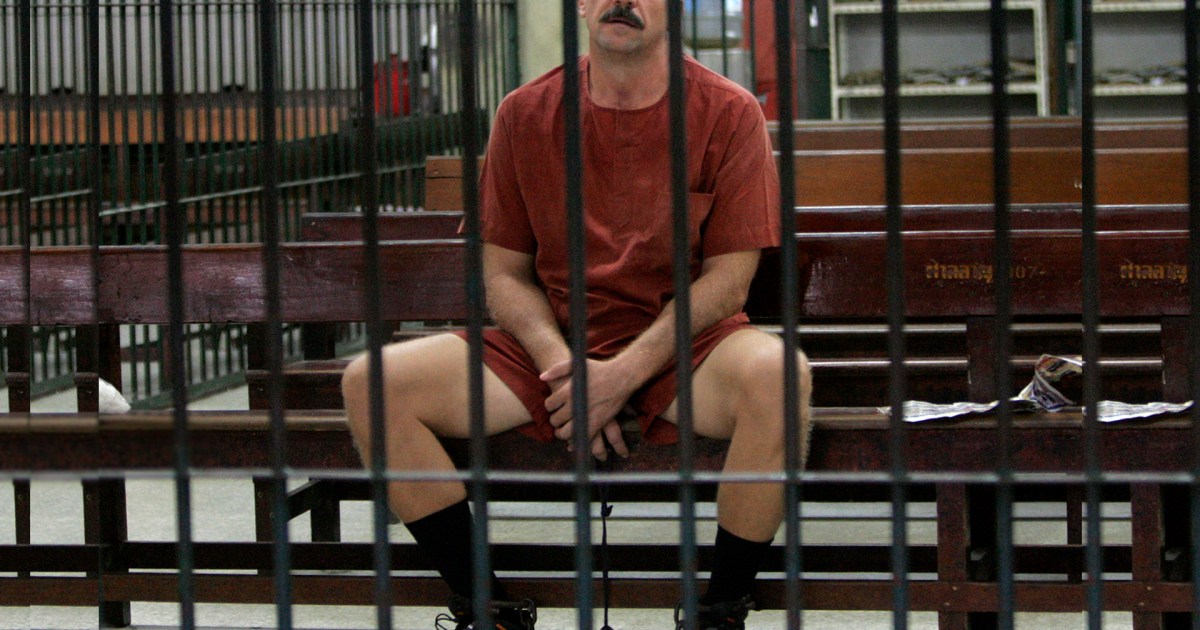His name is Victor Bout (55 years), nicknamed "The Merchant of Death", he speaks at least 6 languages, and he is the most famous arms dealer of his time, accused of trafficking in arms that spread all over the world, and fueled famous conflicts in Africa, the Middle East and Asia, and he remained He has been in prison in the US state of Illinois since 2008 after he was sentenced to 25 years in prison, and his country, Russia, insists on his return to it. Why?
Moscow and Washington may soon exchange prisoners, and there is no doubt that Victor Bout will be the biggest reward for Russian officials who have protested his mistreatment since his 2008 arrest by the US Drug Enforcement Administration in
Thailand
.
The report quoted Bout's lawyer, Steve Zisseau, warning in July that no Americans would be exchanged unless Victor Bout was repatriated.
silence reward
He explained that Russia complained that Bout was trapped by the Drug Enforcement Administration, but many American officials and analysts believe that it is angry because he has a close relationship with the Russian military intelligence "GRU" (GRU), which is famous for carrying out daring and dangerous operations. The latter has everything from hacking elections to assassinating opponents.
Bot has denied any association with the GRU, as well as any ties with Russian officials.
It is this reticence on the part of Bout and his refusal to cooperate with US authorities - even as he has been sitting alone for more than a decade in a dungeon thousands of miles from his home in Moscow - that are prompting Moscow to reward him, the report notes.
Simon Saradjian - of the Belfer Center for Science and International Affairs at Harvard University - was quoted as saying that Bout would not have run such a huge smuggling business without government protection, but he never talked about it, so the Russian government is keen to get him back so that things stay that way. grammar.
The motherland will never forget you
Russian security expert Mark Galeotti said that releasing Bot will send a message to others - who may end up in trouble - that the motherland will not forget you, adding that the Russians' successful restoration of him will be considered a victory, and the Kremlin is currently looking for victories.
Putin wants something deeper than political gain, said Russian political analyst Tatiana Stanovaya, founder of political analysis group R.Politik. Work for the motherland, at least in the eyes of the government."
Soon after the collapse of the Soviet Union, Butt, like many others who saw an opportunity to profit amid the chaos, turned into a businessman, using a small fleet of Soviet-made Antonov An-8 aircraft to establish an air cargo company, and was apparently ready to To take risks that others do not, by flying to war zones and failed states.
It is also believed that Bout had access to something more valuable than planes: knowledge of the fate of the Soviet Union's vast weapons caches.
Merchant of Death
By 2000 Butt was one of the world's most famous smugglers, dubbed "the Merchant of Death" in the British Parliament, and named in United Nations reports for supplying arms to a rebel movement in Angola and Charles Taylor in Liberia, then supporting a devastating civil war in neighboring Sierra Leone.
Butt drew the Clinton administration's attention to the fact that he was disrupting the peace processes the US president had been supporting across Africa, and at times arming both sides of the conflict.
According to many accounts, Bout retreated from his fiercest arms trade and began living in Golitsino, a small town outside Moscow, and in 2008 he was visited - unfortunately for him - by his friend Andrew Smolyan, who was a former South African intelligence agent and became employed at the time of his visit to Bot with the Department of Defense. American drug control.
It's my fight
Bout was later arrested in Thailand, where he was secretly taped by the Drug Enforcement Administration to organize the purchase of 100 surface-to-air missiles, 20,000 AK-47s, and 20,000 grenades. 740 mortar shells, 350 sniper rifles, 5 tons of C-4 explosives, and 10 million rounds of ammunition for persons believed to be agents of the Revolutionary Armed Forces of Colombia (FARC).
In 2011, a federal court in New York found Bot guilty of several counts, including conspiracy to kill American citizens.
When US Drug Enforcement Administration agents posing as FARC buyers said the weapons would be used against US Air Force pilots working with the Colombian government, Bott told them, "They are the same as my enemies, it's my fight."

